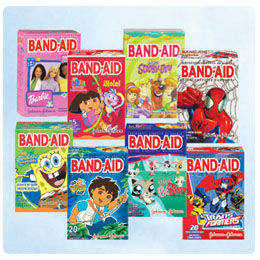It’s the commonest metaphor I hear at work: “Doctor, I am sick of band-aid solutions. I want to know the cause of (here insert symptom/disease) and I want to fix it”
 Let’s start out with the most famous and useful band-aid in all of medicine. Insulin. Just read the description in Medical News Today: “(In 1922) the scientists went to the other wards with diabetic children, most of them comatose and dying from diabetic keto-acidosis. They went from bed-to-bed and injected them with the new purified extract – insulin. This is known as one of medicine’s most dramatic moments. Before injecting the last comatose children, the first started to awaken from their comas. A joyous moment for family members and hospital staff!!”
Let’s start out with the most famous and useful band-aid in all of medicine. Insulin. Just read the description in Medical News Today: “(In 1922) the scientists went to the other wards with diabetic children, most of them comatose and dying from diabetic keto-acidosis. They went from bed-to-bed and injected them with the new purified extract – insulin. This is known as one of medicine’s most dramatic moments. Before injecting the last comatose children, the first started to awaken from their comas. A joyous moment for family members and hospital staff!!”

Insulin pens. Wiki Commons
Yes, this still brings a tear to my eye. And yet insulin was, and still is, a band-aid. We are close to resolving the immune nature of Type 1 diabetes and with that will come a remedy for the cause, no doubt. But hey, insulin beats the alternative.
And there are band-aids for lots of problems: hypertension, migraine, depression.. And band-aid treatment can improve quality of life and often reduce mortality. People feel better, can function socially and at work, and with some diseases, may live longer. Although some diseases are cured by finding a cause, in the majority the actual curable origin remains elusive.
Take hypertension. In about 10% a cause is found and corrected – and your blood pressure drops. In the rest, well, some factors are modified (you know them – obesity, exercise and so on) but a cure is not possible – yet. And yet treating this hypertension with drugs (the dreaded ‘D’ word) lowers mortality. A band-aid is saving lives!
What about allergic and immune disease? We cannot find the cause of many cases of chronic hives and chronic sinusitis. These conditions lead to a great deal of pain and discomfort and embarrassment. All we offer are band-aids: antihistamines tablets, nasal sprays, sometimes even cortisone or steroids. But used judiciously, these drugs can often (not always) improve your life.
Finally there is asthma. Trigger factors are important. But the ultimate cause escapes us. So what do regular inhaled corticosteroid preventer sprays do? Less hospital visits. Less time off school or work. Better sport performance. And a contribution to lowered mortality. Not bad for a band-aid. So, stick to your asthma action plans at all times.
The patient, carer and doctor must work together to find a cause for illness. Once examination and tests fail to find a reversible cause, it’s band-aid time. Whether you like to wear a band-aid for your illness depends not only on your perception of it being just a band-aid, and a balancing act between effectiveness and side-effects, but also a realisation that band-aid treatment is not necessarily evil in itself.
Which leaves us with old age. As someone in that group, I know the wonderful advantages of many band-aids. But senility is progressive, live with it, and listen to Woody Allen: “I’m not afraid of death; I just don’t want to be there when it happens”.



